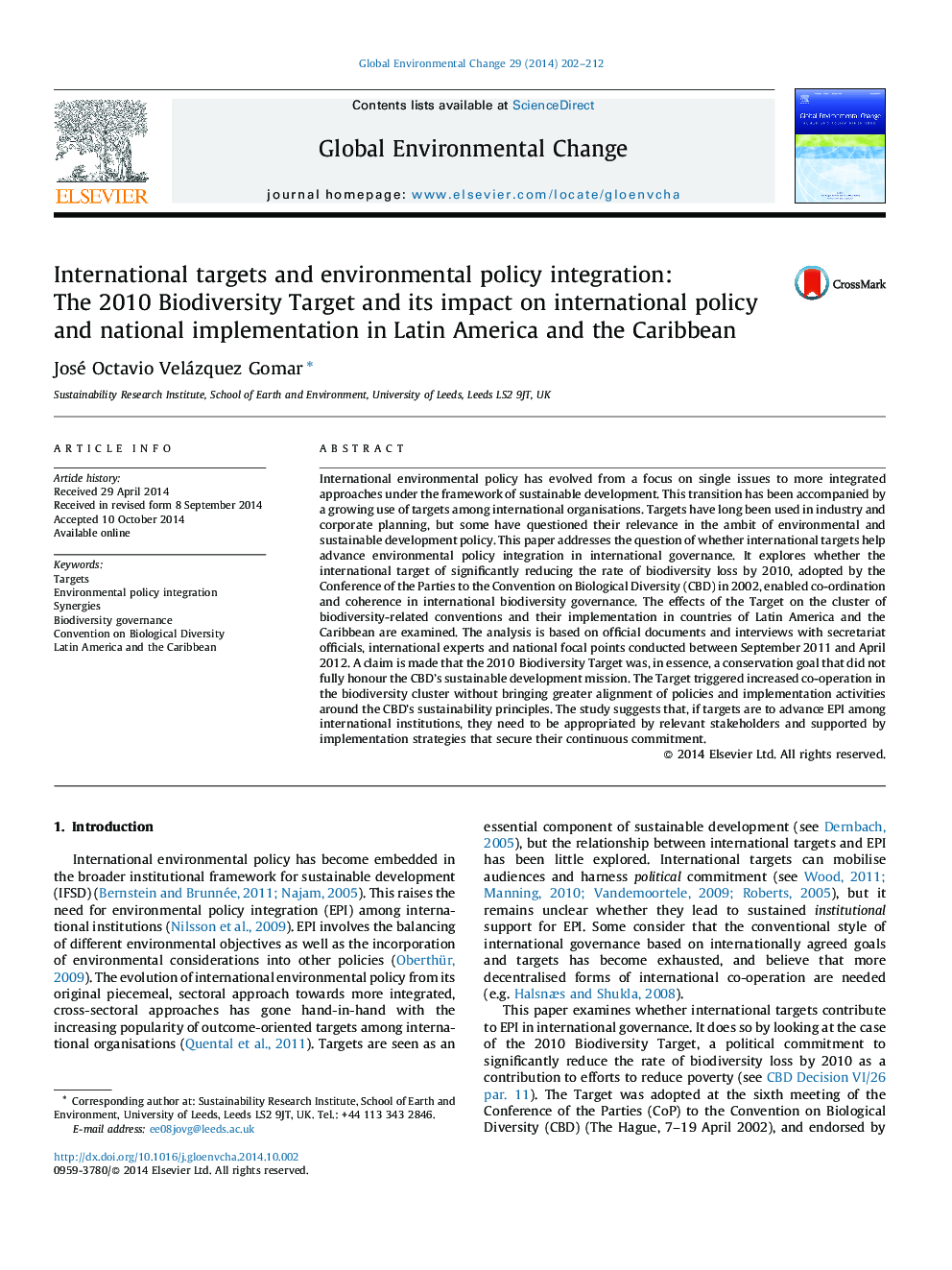| Article ID | Journal | Published Year | Pages | File Type |
|---|---|---|---|---|
| 7470293 | Global Environmental Change | 2014 | 11 Pages |
Abstract
International environmental policy has evolved from a focus on single issues to more integrated approaches under the framework of sustainable development. This transition has been accompanied by a growing use of targets among international organisations. Targets have long been used in industry and corporate planning, but some have questioned their relevance in the ambit of environmental and sustainable development policy. This paper addresses the question of whether international targets help advance environmental policy integration in international governance. It explores whether the international target of significantly reducing the rate of biodiversity loss by 2010, adopted by the Conference of the Parties to the Convention on Biological Diversity (CBD) in 2002, enabled co-ordination and coherence in international biodiversity governance. The effects of the Target on the cluster of biodiversity-related conventions and their implementation in countries of Latin America and the Caribbean are examined. The analysis is based on official documents and interviews with secretariat officials, international experts and national focal points conducted between September 2011 and April 2012. A claim is made that the 2010 Biodiversity Target was, in essence, a conservation goal that did not fully honour the CBD's sustainable development mission. The Target triggered increased co-operation in the biodiversity cluster without bringing greater alignment of policies and implementation activities around the CBD's sustainability principles. The study suggests that, if targets are to advance EPI among international institutions, they need to be appropriated by relevant stakeholders and supported by implementation strategies that secure their continuous commitment.
Keywords
Related Topics
Life Sciences
Environmental Science
Environmental Science (General)
Authors
José Octavio Velázquez Gomar,
